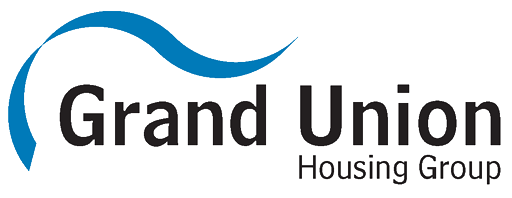By Deborah Stuart, Director of Wellbeing & Safeguarding
National Safeguarding Adults Week is a good opportunity to look back at the work we do as an organisation to support our most at-risk customers.
As Director or Wellbeing & Safeguarding, I’m proud of the work our teams do to support these customers and how important safeguarding is to Grand Union.
“This year we have seen 111 referrals from across all areas of the business, with harm-to-self and self-neglect being the most common referral types.”
There’s no doubting the fact that the coronavirus crisis has impacted us all in some way; but for people who are already at risk or already have vulnerabilities, this impact has the potential to increase significantly. This was immediately recognisable in the type of referrals we received via our safeguarding referral process.
Unfortunately there was a notable increase in referrals for domestic abuse and child abuse, which can be attributed to families spending more time together indoors, along with the stresses of losing work and income, and mental distress from the loss of autonomy as a direct result of lockdown.
Statistics also showed an increase in self-harm and self-neglect, with mental health crises taking a sharp rise as we made our way through the first lockdown. Financial difficulties due to loss of income, and isolation were the primary contributors to this.
To date, this year we have seen 111 referrals from across all areas of the business, with harm-to-self and self-neglect being the most common referral types, making up 52% of all referrals.
After self-harm, the person most likely to cause someone harm is a spouse or family member – 20% of referrals we receive show this. This includes all types of abuse, but primarily domestic abuse, physical, sexual and emotional abuse, neglect and financial abuse.
Finally, people aged from 26–49 (30%) and 50-69 (32%) are the most likely to be referred with 62% of all referrals being within these age ranges.
Whilst these numbers give us more than just cause for thought, the real-life stories have impacted me more, and I wanted to share an example.
Just over a month into the first national lockdown, Grand Union received a message from Vena, whose name we’ve change for obvious reasons, via social media.
Vena said she was in crisis and didn’t know where else to turn. She was out of work, short of money, living alone and unable to see her family.
For someone who had previously been working, living independently, and seeing her grandchildren several times a week, this was an extreme change of circumstances and understandably, significantly impacted her mental health.
Once she reached out, we were able to introduce her to our Wellbeing & Support team who arranged a food parcel, referrals to our Welfare Benefits and Money Advice teams to help her with her finances, and gave her a call once or twice a week to make sure that she was starting to feel better. We also supported her to reach out to her GP who arranged further long-term support for her.
Within a few weeks, her situation and mental wellbeing had improved significantly. Once lockdown started to lift, she was able to spend more time with her family, her finances were more settled enabling her to live more comfortably and she thanked us for supporting her at a time of great need.
I’m extremely proud to work with colleagues making a difference to so many people’s lives. At Grand Union we say that what we do matters, and Vena’s story is a great example of just that.
As the second national lockdown continues, it’s our duty as a landlord to continue to provide a safe home for all our customers and safeguarding can play a pivotal role in that.


